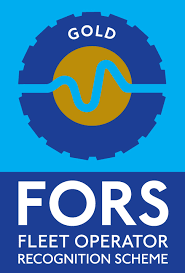Operator Licence Obligations
Step-by-Step Guide for HGV Operator Licence Holders:
Ensuring Compliance with DVSA Regulations
Compliance with DVSA regulations is a vital aspect of operating HGVs. Upholding compliance not only ensures the safety of your fleet and drivers but also helps build a reputable and trustworthy business. In this comprehensive guide, we will provide you with step-by-step guidelines to ensure practical compliance with your operator obligations. By following these guidelines, you can navigate the regulatory landscape confidently, avoiding costly penalties. Additionally, leverage the services of our expert transport compliance consultants at the FTC for tailored solutions to meet your compliance needs.
Step 1: Understand and Fulfill Your Operator Obligations
To achieve compliance, it is crucial to familiarize yourself with your operator obligations as outlined by the DVSA. These obligations include maintaining accurate records, conducting regular vehicle inspections, managing drivers' hours and rest periods, and implementing robust maintenance and safety practices.
Step 2: Establish an Effective Compliance System
Implementing a robust compliance system within your organization is key to ensuring compliance. Develop clear policies, procedures, and processes aligned with DVSA regulations. Create an internal compliance manual outlining responsibilities for fleet managers, drivers, and maintenance personnel.
Step 3: Regularly Review and Update Policies
Stay informed about changes in transport regulations to keep your policies up to date. Subscribe to industry newsletters, participate in relevant training programs, and review DVSA guidelines regularly. Proactively adapting to regulatory changes helps you avoid non-compliance.
Step 4: Implement Effective Driver Management Practices
Compliance hinges on effective driver management. Ensure your drivers have valid licenses, receive proper training, and are regularly monitored. Maintain accurate records of their working hours, rest periods, and any incidents or infringements. Establish a robust system for reporting and addressing driver-related issues promptly.
Step 5: Maintain a Comprehensive Vehicle Maintenance Schedule
Regular vehicle maintenance is crucial for safety and compliance. Develop a comprehensive maintenance schedule encompassing routine inspections, repairs, and servicing. Keep detailed records of all maintenance activities, including dates, work descriptions, and responsible individuals. Conduct thorough daily vehicle checks to promptly identify and rectify any issues.
Step 6: Maintain Accurate and Up-to-Date Records
Accurate record-keeping is essential to demonstrate compliance with operator obligations. Maintain detailed records of driver hours, vehicle maintenance, inspections, incidents, and infringements. Streamline record-keeping processes using digital tools or specialized compliance software, minimizing errors and ensuring easy access to information.
Step 7: Conduct Regular Internal Audits
Internal audits play a pivotal role in assessing compliance status. Conduct periodic audits to review policies, procedures, and records. Identify areas of non-compliance or potential weaknesses, taking prompt corrective actions. Audits help address issues before they escalate and demonstrate your commitment to compliance.
Conclusion:
Ensuring compliance with DVSA regulations is an ongoing responsibility for HGV operator licence holders. By following this step-by-step guide, you can establish robust compliance systems, maintain accurate records, and prioritize safety in your operations. Compliance is not only a legal requirement but also vital for building trust and sustaining a successful business. For specialized assistance and tailored solutions to enhance your compliance practices, leverage the services offered by our expert transport compliance consultants at www.theftc.co.uk. Their expertise and experience will guide you in navigating the complex regulatory landscape while ensuring compliance at every step.

